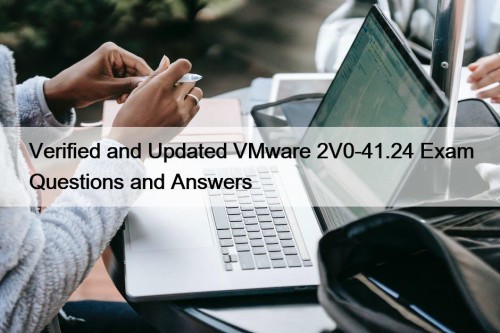Most Popular
 Verified and Updated VMware 2V0-41.24 Exam Questions and Answers
Verified and Updated VMware 2V0-41.24 Exam Questions and Answers
Our 2V0-41.24 practice materials will help you pass the 2V0-41.24 ...
 100% Pass 2025 78201X: Avaya IP Office™Platform Support Certified Exam–Valid Exam Flashcards
100% Pass 2025 78201X: Avaya IP Office™Platform Support Certified Exam–Valid Exam Flashcards
BTW, DOWNLOAD part of VCEDumps 78201X dumps from Cloud Storage: ...
 Oracle 1z0-071 Exam | Latest 1z0-071 Exam Simulator - Bring you The Best Reliable 1z0-071 Test Price
Oracle 1z0-071 Exam | Latest 1z0-071 Exam Simulator - Bring you The Best Reliable 1z0-071 Test Price
DOWNLOAD the newest 2Pass4sure 1z0-071 PDF dumps from Cloud Storage ...



CKA Reliable Test Tutorial & New CKA Dumps Questions

DOWNLOAD the newest ExamsTorrent CKA PDF dumps from Cloud Storage for free: https://drive.google.com/open?id=1ahy09hKS5JjP3xY33XjxezduDcg2DWlC
If you are worried about your exam, just choose us, we will help you pass the exam and strengthen your confidence. CKA Soft test engine can stimulate the real exam environment, so that you can know the procedure of the exam, and your nerves will be decreased and your confidence will be increased. In addition, CKA Training Materials are high quality, and they can help you pass the exam just one time. If you fail to pass the exam in your first attempt after using CKA exam dumps of us, we will give you full refund.
Linux Foundation CKA (Certified Kubernetes Administrator) program is a certification that recognizes an individual's expertise in managing and deploying applications on the Kubernetes platform. Certified Kubernetes Administrator (CKA) Program Exam certification is designed for professionals who have a solid understanding of Kubernetes and its underlying components, including networking, storage, security, and cluster architecture. The CKA program is ideal for individuals who are looking to enhance their Kubernetes skillset and are interested in pursuing a career in DevOps, cloud computing, or containerization.
The CKA program is highly regarded in the industry, and individuals who have earned this certification are considered experts in Kubernetes administration. Certified Kubernetes Administrator (CKA) Program Exam certification is recognized globally and is highly valued by organizations looking for Kubernetes administrators. The CKA program is a great way for individuals to demonstrate their expertise in Kubernetes administration and enhance their career opportunities.
Linux Foundation CKA (Certified Kubernetes Administrator) Program Certification Exam is a leading certification program designed for IT professionals who want to demonstrate their expertise in managing and deploying applications using Kubernetes technology. Kubernetes is an open-source container orchestration system that automates the deployment, scaling, and management of containerized applications. As containerization becomes increasingly popular in modern software development, the demand for Kubernetes experts has grown rapidly. The CKA certification program is an excellent way for IT professionals to enhance their Kubernetes skills, demonstrate their expertise to employers, and advance their careers.
>> CKA Reliable Test Tutorial <<
New CKA Dumps Questions - CKA Latest Version
The CKA exam prepare materials of ExamsTorrent is high quality and high pass rate, it is completed by our experts who have a good understanding of real CKA exams and have many years of experience writing CKA study materials. They know very well what candidates really need most when they prepare for the CKA Exam. They also understand the real CKA exam situation very well. We will let you know what a real exam is like. You can try the Soft version of our CKA exam question, which can simulate the real exam.
Linux Foundation Certified Kubernetes Administrator (CKA) Program Exam Sample Questions (Q80-Q85):
NEW QUESTION # 80
Check logs of each container that "busyboxpod-{1,2,3}"
- A. kubectl logs busybox -c busybox-container-1
kubectl logs busybox -c busybox-container-3
kubectl logs busybox -c busybox-container-3 - B. kubectl logs busybox -c busybox-container-1
kubectl logs busybox -c busybox-container-2
kubectl logs busybox -c busybox-container-3
Answer: B
NEW QUESTION # 81
For this item, you will have to ssh to the nodes ik8s-master-0 and ik8s-node-0 and complete all tasks on these nodes. Ensure that you return to the base node (hostname: node-1) when you have completed this item.
Context
As an administrator of a small development team, you have been asked to set up a Kubernetes cluster to test the viability of a new application.
Task
You must use kubeadm to perform this task. Any kubeadm invocations will require the use of the
--ignore-preflight-errors=all option.
* Configure the node ik8s-master-O as a master node. .
* Join the node ik8s-node-o to the cluster.
Answer:
Explanation:
See the solution below.
Explanation
solution
You must use the kubeadm configuration file located at /etc/kubeadm.conf when initializingyour cluster.
You may use any CNI plugin to complete this task, but if you don't have your favourite CNI plugin's manifest URL at hand, Calico is one popular option: https://docs.projectcalico.org/v3.14/manifests/calico.yaml Docker is already installed on both nodes and has been configured so that you can install the required tools.
NEW QUESTION # 82
Score: 4%
Task
Check to see how many nodes are ready (not including nodes tainted NoSchedule ) and write the number to
/opt/KUSC00402/kusc00402.txt
Answer:
Explanation:
See the solution below.
Explanation
Solution:
kubectl describe nodes | grep ready|wc -l
kubectl describe nodes | grep -i taint | grep -i noschedule |wc -l
echo 3 > /opt/KUSC00402/kusc00402.txt
#
kubectl get node | grep -i ready |wc -l
# taintsnoSchedule
kubectl describe nodes | grep -i taints | grep -i noschedule |wc -l
#
echo 2 > /opt/KUSC00402/kusc00402.txt
NEW QUESTION # 83
Get list of PVs and order by size and write to file - /opt/pvlist.txt
Answer:
Explanation:
kubectl get pv --sort-by=.spec.capacity.storage > /opt/pvlist.txt
NEW QUESTION # 84
You are running a Deployment named 'web-app' with 3 replicas of a web application container. The container image is hosted in a private registry accessible via a secret named 'my-registry-secret'. You need to implement a rolling update strategy that allows for a maximum of one pod to be unavailable at any given time during the update process. Additionally, you need to configure a 'pre-stop' hook for the container that gracefully shuts down the web application before it is terminated.
Answer:
Explanation:
See the solution below with Step by Step Explanation.
Explanation:
Solution (Step by Step) :
1. Update the Deployment YAML:
- Update the 'replicas' to 3.
- Define 'maxUnavailable: 1' and 'maxSurge: 0' in the 'strategy.rollingUpdate' section to control the rolling update process.
- Configure a 'strategy.type' to 'RollingUpdate' to trigger a rolling update when the deployment is updated.
- Add a Always' to ensure that the new image is pulled
even if it exists in the pod's local cache.
- Add a hook to define a script that gracefully shuts down
the web application before the pod is terminated.
2. Create the Deployment: - Apply the updated YAML file using 'kubectl apply -f web-app.yamP 3. Verify the Deployment: - Check the status of the deployment using 'kubectl get deployments web-app' to confirm the rollout and updated replica count. 4. Trigger the Automatic Update: - Push a new image to the 'my-private-registry/web-app:latest' private registry. 5. Monitor the Deployment: - Use "kubectl get pods -l app=web-app' to monitor the pod updates during the rolling update process. You will observe that one pod is terminated at a time, while one new pod with the updated image is created. 6. Check for Successful Update: - Once the deployment is complete, use 'kubectl describe deployment web-app' to see that the 'updatedReplicas' field matches the 'replicas' field, indicating a successful update.
NEW QUESTION # 85
......
How to improve your IT ability and increase professional IT knowledge of CKA real exam in a short time? Obtaining valid training materials will accelerate the way of passing CKA actual test in your first attempt. It will just need to take one or two days to practice Linux Foundation CKA Test Questions and remember answers. You will free access to our test engine for review after payment.
New CKA Dumps Questions: https://www.examstorrent.com/CKA-exam-dumps-torrent.html
- 100% Pass 2025 Linux Foundation CKA: Certified Kubernetes Administrator (CKA) Program Exam First-grade Reliable Test Tutorial 👷 Open ▶ www.prep4away.com ◀ enter ▷ CKA ◁ and obtain a free download 🥅Testking CKA Exam Questions
- 100% Pass 2025 Linux Foundation CKA: Certified Kubernetes Administrator (CKA) Program Exam First-grade Reliable Test Tutorial 🍲 Open ☀ www.pdfvce.com ️☀️ enter ⇛ CKA ⇚ and obtain a free download 🆒CKA Test Pattern
- CKA Test Pattern 🍙 CKA Exam Experience 🍮 Download CKA Pdf 🧷 Search for 「 CKA 」 and easily obtain a free download on 《 www.exam4pdf.com 》 🕘Testking CKA Exam Questions
- Download CKA Pdf 🍜 CKA Certification Questions 🎆 CKA Test Testking ▶ Easily obtain ( CKA ) for free download through ➠ www.pdfvce.com 🠰 🥉CKA New Practice Questions
- HOT CKA Reliable Test Tutorial - Valid Linux Foundation New CKA Dumps Questions: Certified Kubernetes Administrator (CKA) Program Exam 🐪 Search for ( CKA ) on ▛ www.dumpsquestion.com ▟ immediately to obtain a free download 🥥CKA Test Questions Vce
- Looking for a Quick Way to Crack Linux Foundation CKA Exam? Try This Instant Method 🖱 Search on ⮆ www.pdfvce.com ⮄ for “ CKA ” to obtain exam materials for free download 🐫Download CKA Pdf
- CKA Valid Test Dumps 📧 CKA New Dumps Files 🍲 New CKA Test Labs 🌇 Search for [ CKA ] and download it for free on 【 www.torrentvalid.com 】 website 🕎CKA Exam Experience
- 100% Pass Quiz 2025 CKA: High-quality Certified Kubernetes Administrator (CKA) Program Exam Reliable Test Tutorial 🎄 Search for 《 CKA 》 and download it for free immediately on ➤ www.pdfvce.com ⮘ ⛲CKA Test Pattern
- Pass the First Time For The Linux Foundation CKA Exam 🐰 Enter ▷ www.testsimulate.com ◁ and search for 【 CKA 】 to download for free ☃CKA Reliable Exam Book
- 100% Pass Quiz 2025 CKA: High-quality Certified Kubernetes Administrator (CKA) Program Exam Reliable Test Tutorial 🛤 Simply search for [ CKA ] for free download on ▶ www.pdfvce.com ◀ 🚚CKA Test Pattern
- 2025 Useful CKA: Certified Kubernetes Administrator (CKA) Program Exam Reliable Test Tutorial 🦪 Open “ www.dumps4pdf.com ” and search for ⏩ CKA ⏪ to download exam materials for free 🏆CKA Reliable Exam Book
- CKA Exam Questions
- monozog.com kci.com.kw rts4ever.com alephinstituto.com anjanilalawebsolutions.online www.multifed.com hydurage.com startupbldr.com training.siyashayela.com ehackerseducations.com
2025 Latest ExamsTorrent CKA PDF Dumps and CKA Exam Engine Free Share: https://drive.google.com/open?id=1ahy09hKS5JjP3xY33XjxezduDcg2DWlC
Tags: CKA Reliable Test Tutorial, New CKA Dumps Questions, CKA Latest Version, CKA Exam Introduction, CKA Training Kit